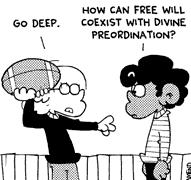A fatal irony: Why the “circumcision solution” to the AIDS epidemic in Africa may increase transmission of HIV
* Note: this article has been re-posted at various other sites, sometimes with minor edits. This is the original and should be referred to in case of any discrepancies.
A fatal irony: Why the “circumcision solution” to the AIDS epidemic in Africa may increase transmission of HIV
1. Experimental doubts
A handful of circumcision advocates have recently begun haranguing the global health community to adopt widespread foreskin-removal as a way to fight AIDS. Their recommendations follow the publication of three [1] randomized controlled trials (RCTs) conducted in Africa between 2005 and 2007.
These studies have generated a lot of media attention. In part this is because they claim to show that circumcision reduces HIV transmission by about 60%, a figure that (interpreted out of context) is ripe for misunderstanding, as we’ll see. Nevertheless, as one editorial [2] concluded: “The proven efficacy of MC [male circumcision] and its high cost-effectiveness in the face of a persistent heterosexual HIV epidemic argues overwhelmingly for its immediate and rapid adoption.”
Well, hold your horses. The “randomized controlled trials” upon which these recommendations are based are not without their flaws. Their data have been harnessed to support public health recommendations on a massive scale whose implementation, it has been argued, may have the opposite of the claimed effect, with fatal consequences. As Gregory Boyle and George Hill explain in their extensive analysis of the RCTs:






